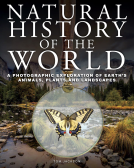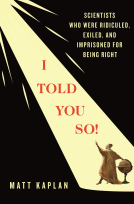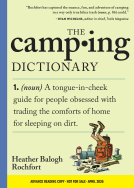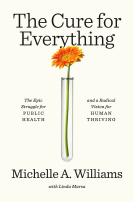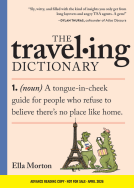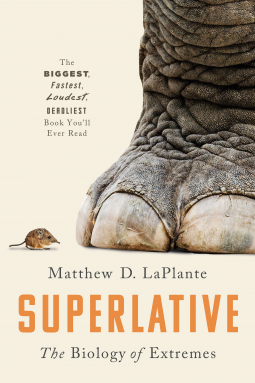
Superlative
The Biology of Extremes
by MATTHEW D. LAPLANTE
This title was previously available on NetGalley and is now archived.
Send NetGalley books directly to your Kindle or Kindle app
1
To read on a Kindle or Kindle app, please add kindle@netgalley.com as an approved email address to receive files in your Amazon account. Click here for step-by-step instructions.
2
Also find your Kindle email address within your Amazon account, and enter it here.
Pub Date Apr 30 2019 | Archive Date Jul 01 2019
Talking about this book? Use #Superlative #NetGalley. More hashtag tips!
Description
Welcome to the biggest, fastest, deadliest science book you'll ever read.
The world's largest land mammal could help us end cancer. The fastest bird is showing us how to solve a century-old engineering mystery. The oldest tree is giving us insights into climate change. The loudest whale is offering clues about the impact of solar storms.
For a long time, scientists ignored superlative life forms as outliers. Increasingly, though, researchers are coming to see great value in studying plants and animals that exist on the outermost edges of the bell curve.
As it turns out, there's a lot of value in paying close attention to the "oddballs" nature has to offer.
Go for a swim with a ghost shark, the slowest-evolving creature known to humankind, which is teaching us new ways to think about immunity. Get to know the axolotl, which has the longest-known genome and may hold the secret to cellular regeneration. Learn about Monorhaphis chuni, the oldest discovered animal, which is providing insights into the connection between our terrestrial and aquatic worlds.
Superlative is the story of extreme evolution, and what we can learn from it about ourselves, our planet, and the cosmos. It's a tale of crazy-fast cheetahs and super-strong beetles, of microbacteria and enormous plants, of whip-smart dolphins and killer snakes.
This book will inspire you to change the way you think about the world and your relationship to everything in it.
Available Editions
| EDITION | Other Format |
| ISBN | 9781946885944 |
| PRICE | $24.95 (USD) |
| PAGES | 304 |
Links
Average rating from 23 members
Featured Reviews
 David W, Media/Journalist
David W, Media/Journalist
Matthew LaPlante’s Superlative is an homage to the Guinness Book of Records, natural edition. He admits everyone loves record setters, including if not especially him. And he is a lover of things natural. As a journalist, he says he pestered his editor until he was allowed to cover the zoo. The book is a best of, featuring what animals and plants do that Man can only drool over.
LaPlante has put a lot of passion into the book. He seems to have met pretty much every animal and plant he describes, from his visits with scientists and their labs, to field trips all over the planet. It is a labor of love as much as appreciation and awe. The most interesting aspects are the whys. Why is this the loudest, the biggest, the tallest, the smallest, the fastest runner/swimmer/flier? What is its advantage? Why does this being have this ability at all?
Elephants rank very highly in his schema. Elephants and Man share a cancer-fighting gene called p53. In Man it surrounds the mutated and mutating cancer cells, and fails to stop them. In elephants, which have 20 copies of p53, it tells the cells to die. So elephants are not cancer-prone. This commanded cell death is called apoptosis, and we see it in Man when the brain tells mitochondria to die when the energy they produce is no longer needed by aging bodies. Not a helpful option. Elephants are also emotional animals, traumatized for life by Man’s killing of their mothers in order to capture them for zoos. And true to the myth, they have phenomenal memories, which LaPlante proves.
The world’s largest tree is also its largest living thing. It’s a 107-acre Quaking Aspen in Utah. Quaking aspens spread underground, and all the shoots – what look to be a simple forest – are all attached to the same root, and are of course genetically identical. Now called Pando, the tree has 47,000 shoots. And it might be 800,000 years old (though some say “only” 80,000), making it by far the oldest living being as well. It’s a very interesting survival strategy: no flowers, no seeds, no fruit. Just root expansion. Very risky, but on planet Earth, there is no end to lifeforms and strategies.
Possibly the toughest beast on Earth is the tardigrade, aka water bear. It is a millimeter and a half sort of caterpillar with eight feet. It can be frozen, boiled, dehydrated and irradiated and still come back for more. We have only begun to classify the varieties of tardigrade we see worldwide. He says they are found from the highest mountains to the deepest ocean trenches. They’re the toughest, most resilient life we know of. They not only have impressive genes, they lack the genes that cause inflammation and pain. Their genes have the potential to change our lives forever.
Appropriating genes might mean Man could travel between planets without suffering the effects of unfiltered radiation bombardment. Or even just surviving the expected new temperature ranges up to 200 degrees Fahrenheit on Earth. LaPlante teases us with the genetic uniqueness of numerous superlative performers throughout the book and what it could mean for Man.
The octopus is the first/oldest intelligent being. Able to analyze its environment, measure up other beings in the area, strategize, escape, learn and make intelligent decisions, it has just two years of life to maximize its abilities. This once shell-protected smart snail is totally unprotected and vulnerable, and must live by its wits alone. The central brain acts as a quarterback, LaPlante says, and the remote brains controlling each of the eight arms do whatever they need to do to execute, which is why they seem to be all over the place, never moving in co-ordination. This distributed hierarchy system is now being applied to co-coordinating thousands of drones at a time.
The slowest animal in the world is the three toed sloth, which burns all of a hundred calories a day – a teaspoon of peanut butter would sustain it.
There are moths that can hear up to 300khz (humans stop at about 20, dogs at 40), far above the echolocation of today’s bats that seek them out.
Of interest is LaPlante’s frustration in doing research for this book. There is hardly any. Many of the animals he profiles were the subject of no scientific studies whatsoever. On others, the research is, to be polite, thin. In the meantime, they are disappearing, and we haven’t even figured out why they are so good at what they do, or how we could benefit from them. Doesn’t seem to stop anyone.
David Wineberg
 Librarian 250745
Librarian 250745
This amazing book is a love letter to the fabulous diversity of nature, and to hardiness of living organisms in general. Life really does find a way. From the three toed sloth to the cheetah, from the African elephant to the hummingbird, the author shares his wonder and passion for nature, natural selection strategies and genetics, as well as his frustration that we are losing so many amazing creatures and plants a year without even noticing or realising how they are so good at what they do. This book is beautiful and intelligent, sufficiently scientific for an ex geneticist like me but still accessible to anyone with an interest. This book truly is superlative.
Superlative follows its title expertly, detailing the many species and biological marvels that fall within the extremes of their respective genera. It’s a fascinating book written in a down-to-earth style that’s filled with the excitement and wonder of a scientist’s inner child. At the end, you’ll understand how amazing the world truly is and how much these extreme creatures can help us understand about the world.
LaPlante takes us all over the globe, detailing his many strange journeys to collect information on these extreme creatures. We see him attempting to shovel poop in the wake of a giant whale. We see him searching for elephants deep in Africa. The most interesting aspect is the many conversations he has with experts of every scientific branch. Frog experts, microbiologists, tree scientists. Anything you could want to know about the extremes of the world is collected here.
These are the animals that so fascinated us as kids. Elephants, giraffes, blue whales. Their size alone makes them fascinating to the world at large. LaPlante digs deeper, looking at the many marvelous discoveries made possible by studying them closely. You’d be amazed at what you could learn from the poop and snot of a whale, or from the cutest animal you’ve never seen, the Etruscan shrew. You’ll discover many species you weren’t aware of as you get deeper in the book, looking at land speed, loud noises, age, strength and intelligence. Think of this as a Guinness World Record book of sorts. The difference lies in the fact that these creatures were already record-breaking without knowing it.
Overall, Superlative is an exceptional book that’s easy-to-read and easy to obsess over. You’ll learn so much about things you’ve never thought of and it just might spark a deeper interest in the planet.
Review will be published on April 30: https://reviewsandrobots.com/2019/04/30/superlative-book-review
 Michaela K, Reviewer
Michaela K, Reviewer
Superlative is a nicely written book about animal extremes and what studying these animals can offer us in terms of knowledge, technological innovations and medical advances. LaPlante takes a look at a variaty of organisms - the fastest, tallest, largest, loudest, smallest, oldest, toughest, slowest, most venomous, most poisonous, and the smartest etc. While the author's fascination with superlative animals and plants is clearly evident, so is his (and this readers) frustration with the lack of interest science shows in these organisms. While this book isn't terribly indepth, it does provide a delightful survey of a variety of creatures, some well-known and some more obscure, as well as how the study of these superlative organisms can benefit humans in a variety of ways - everything from climate change research and indicators (frogs and clams), to genetics and cancer treatments (elephants), new drugs (spiders, snakes, jellyfish), technological advances (moths, bats, mites and whales), bioindicators (frogs), regeneration of lost limbs (Axolotl), aging, etc. The conversational style of the book makes it easy to understand. The occassional humour is amusing and not at all cringe-worthy. The extensive reference section provides a list of sources if the reader would like additional information about a particular study or topic.
Great look at extremes in biology
I loved this book - it is science writing done well. Matthew D. LaPlante writes with a conversational tone and a good sense of humor. There is a lot of science in the book, but LaPlante makes it all easily accessible. If the reader is familiar with biology, as I am, the way the story is crafted makes this book well worth reading. If the reader is not familiar with biology, it won’t matter because everything is well explained. I recommend this book for anyone interested in biology.
 Anjana D, Reviewer
Anjana D, Reviewer
If I am being perfectly honest, I requested a copy of this book to fulfil the self imposed criteria of reading something in the Non-fiction genre and not get stuck in any specific sub-genre of fiction. I was rewarded for doing so.
I did not realise how refreshing it would be read and/or discuss the topics in this book. It contains a lot of facts, this may seem to be a form of overload so I suggest taking it in, in chunks, one section or superlative quality at a time. The best part of all the facts in this pages is that they are new, the latest updates to them are as late as 2018. This is something unique for someone (me) who does not actually go out of the way to keep up with general discoveries or discussions in the natural or scientific world. The author clearly shows us how fascinated he is by the concepts that he shares with us and the immense, under-researched potential that is hidden within it and why. It is not meant for one sitting but it is meant for someone with a semblance of interest in the world around us and the power of genetic study and what research in it can throw our way. The Latin names of the species threw me off my pace but after a while I stopped trying to spell it right in my head and kept going. There is nothing conclusive in the chapters, as my usage of under-researched would indicate but there is still time.
Every section of superlative quality tackled here from largest, smallest to oldest etc and how each quality is defined (with some debates on the part of 'proper' definitions) can spike many conversations. I might even hope that for someone who is in the field or heading that way , this collection might spark something. I cannot speak for them since I neither work nor have studied anything biology related after high school level, but I can speak for someone with a healthy dose of appreciation for life in itself. I think when I go on my next buying spree, this book will be on my list.
 Annette J, Reviewer
Annette J, Reviewer
I thoroughly enjoyed this book by Matthew D LaPlante, kindly provided to me by the publisher via NetGalley. As a work of popular science I found it to be well researched and clearly written in a way that is easily understandable to the layperson. The world of nature is truly a fascinating one, and by focusing on its extremes LaPlante is able to both educate and entertain the reader. I loved how he was able to relate seemingly diverse topics, for example how understanding the biology and ecology of the worlds oldest tree may provide valuable information about climate change, or how studying the biology of long living animals may lead to breakthroughs in cancer research. Throughout the book, the author clearly demonstrates how all the parts of the natural world, from the smallest to the largest, are interlinked and all are valuable and worthy of our respect and study.. I loved the conversational tone, and the fact that the subject was clearly personal to the author. His genuine interest in the topic shines through in each anecdote and brings the subject to life.
A fascinating book which examines biological superlatives such as the tallest, the smallest, the loudest, and many more. I learned a great deal from reading this book. The author presented the information in a way that was very accessible. I think of the extremes in biology differently since reading this book and appreciate them much more. I look forward to reading more books by this author!
As a kid I loved browsing through Guinness Book of World Records, I could sit for hours at an end, just reading about the biggest bird, the toothiest animal and so on. Superlative brings back much of that same fascination, albeit for an older audience (obviously!). Matthew D. LaPlante writes in a humouristic and engaging manner, making me eager to read more. I am still as fascinated by the extremes in nature as I was as a kid and this book is all about that, but also what lessons we can learn from other animals, even how animal poison is directing us to cancer cures. The natural world is truly amazing and I hope one day we humans will truly learn to appreciate the diversity of the world we live in! All in all I absolutely loved this book and I´d recommend it to anyone who likes to read about natural history and evolution, it´s a thoroughly entertaining and thought provoking book.
I got an e-ARC of #superlative from the good people at #netgalley and the publisher in return for an honest review.
Since childhood I was fascinated by science books that detailed animals especially weired ones deep inside sea and deep inside rainforest. This book encyclopaedia of such outliers- animals with something special Which no one can match in entire world.
.
As you start the book you get caught in interesting prose and narrative of the author; who makes you familiar with fastest, largest, smartest, most dangerous, oldest, strongest and most adaptable animals and plants.
.
.
Their are so many peculiar animals you will forget counting after few chapters and admire how much science gains from these outliers and how our future advances depend on many of rare capabilities of these animals.
.
I found chapter describing single cell intelligence which is helping us in development of AI and largest organism of world which is not animal as we assume it.
Also chapter on Tardigrades is so fascinating and these water bears are so resilient.
.
.
Writing is simple, storytelling style with very less jargon. Every chapter is a highlight and there is lot to learn from these discoveries and furthur discoveries that these organisms inspire.
.
Essential book for any curious teenager or adult who love to explore things around them with clearer vision and informed brain.
.
.
Next time when you are choosing a gift for bright cousin or son it will be a perfect gift.
.
Thanks netgalley and publisher for review copy.
I really enjoyed this! It was a great primer on so much of what I love about the natural world. I work in conservation, and this does a good job at capturing how much conservation science and learning from other species really matters and why. I personally find the natural world inherently interesting, but I thought this book did a particularly good job of telling interesting stories and moving fluidly from topic to topic to keep it engaging. It’s about so much more than just superlative species and really about what we can learn from nature. Just because something doesn’t think or remember the way we do doesn’t mean it’s not intelligent, and there are still entire universes to be discovered in our own backyards. This book is a love letter to nature. Recommend!
Readers who liked this book also liked:
Created by Hayao Miyazaki
Comics, Graphic Novels, Manga, Sci Fi & Fantasy
Alvin E. Roth
Business, Leadership, Finance, Health, Mind & Body, Politics & Current Affairs





